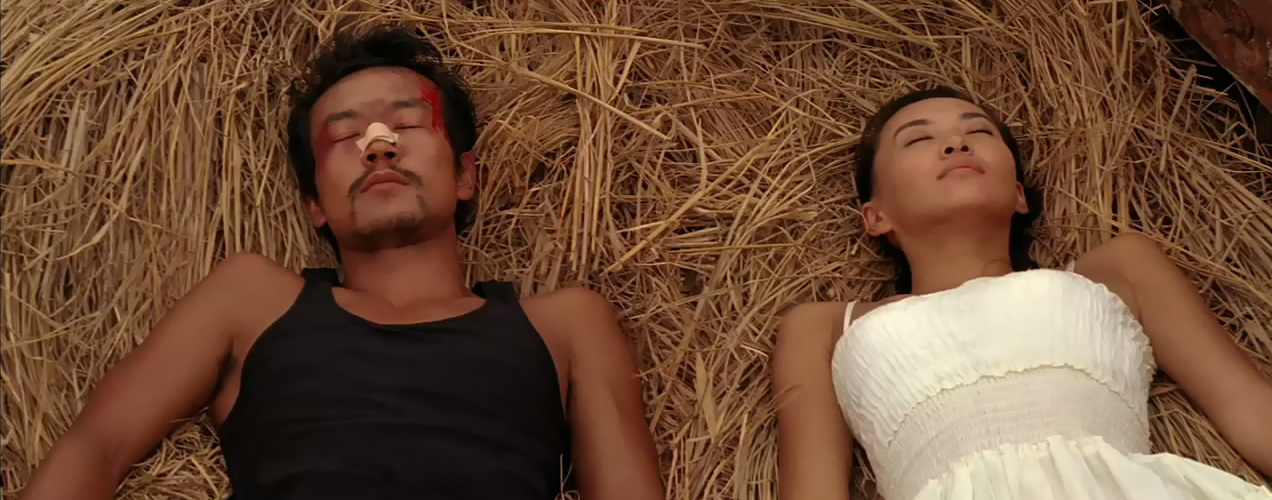2008 / Liu Fendou > A train wreck that you can’t take your eyes away from, that’s what Liu’s concocted for us. In this case, it’s the supremely destructive relationship between a street thug and a well-to-do girl who clutches on tighter the harder he pushes. In some scenarios, it’s easy to say that we should only watch movies that have hope, redeeming values, make us comfortable and fluffy inside. This is the antithesis of all that. There’s nothing but the weakest attributes of humanity on display, and is somehow, at least for me, fascinating enough to stay with until the end. It’s also interesting that this is Hong Kong-favorite Simon Yam’s first producing effort. Maybe he’s playing Robin Hood, taking money from his mainstream winnings and putting them into the virtually nonexistent independent film scene on the island. If so, good. While Ocean Flame is as polarizing a film that may be released out of Hong Kong this year, I’m glad someone is taking these chances.
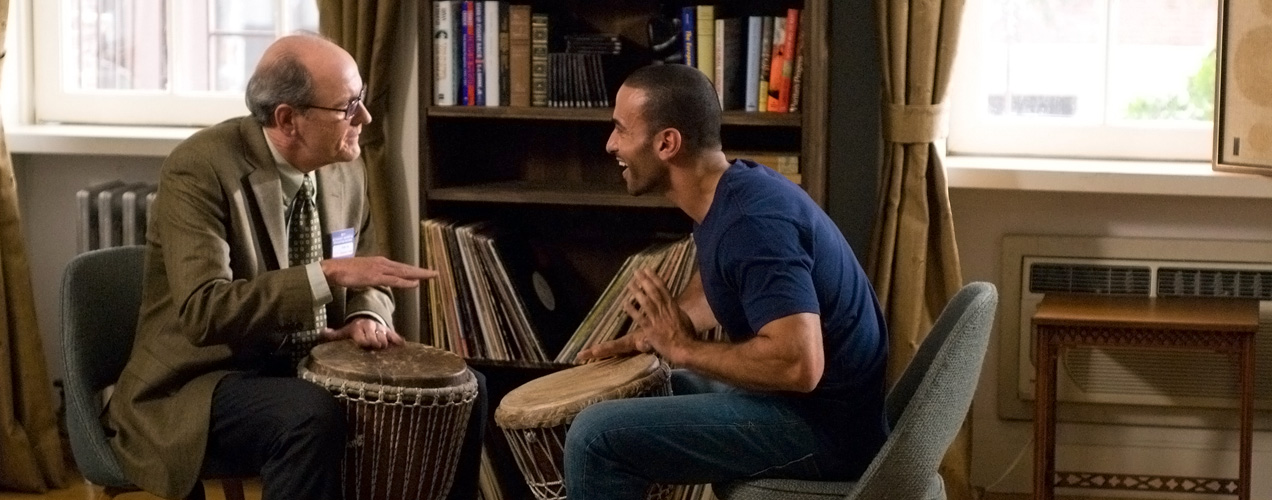
The Visitor
2008 / Thomas McCarthy > With all the buzz surrounding Richard Jenkins’ bid for a Best Actor, it’s easy to watch and like this movie. But I can’t help but find it fundamentally flawed in its approach. I understand that people within America find the immigration system full of injustice, but often these are the same people who would complain if their jobs went overseas. Nobody’s going to have their cake and eat it too, but McCarthy throws away the subtlety from The Station Agent and pulls a Scott Templeton on us with his liberal guilt. Breaking the law is breaking the law—if you know what the consequences are, you shouldn’t be shocked to face them. But politics and social commentary aside, Jenkins deserves praise for his work, but I wouldn’t call it Oscar-calibre. His character’s development felt very calculated, not natural. In contrast, Hiam Abass’ portrayal of the mother was considerably more poetic, memorable and filled with heart. She could definitely slip in a Best Supporting Actress nomination on Jenkins’ coattails.
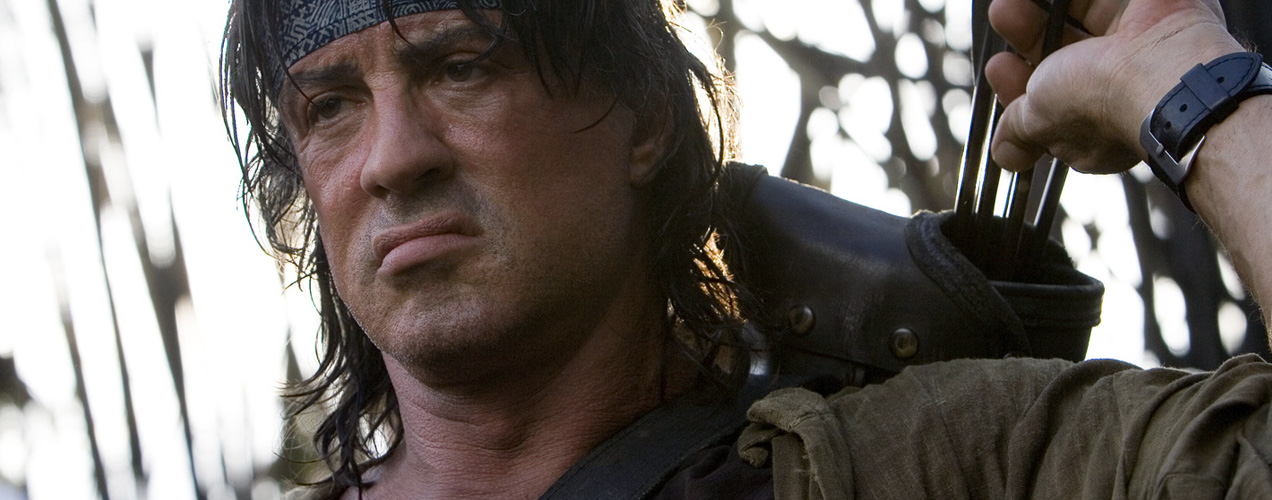
Rambo
2008 / Sylvester Stallone > Exactly what it should be: Thin but acceptable plot, lots of bloody action and gore, and a running time that keeps the babies from crying. I haven’t seen the original ones since I was a wee little lad, so maybe I need a refresher, but Stallone’s smug look in Rambo does get pretty tiring after a while. Has John Rambo always been such a bitter man like this? I want some Tango!
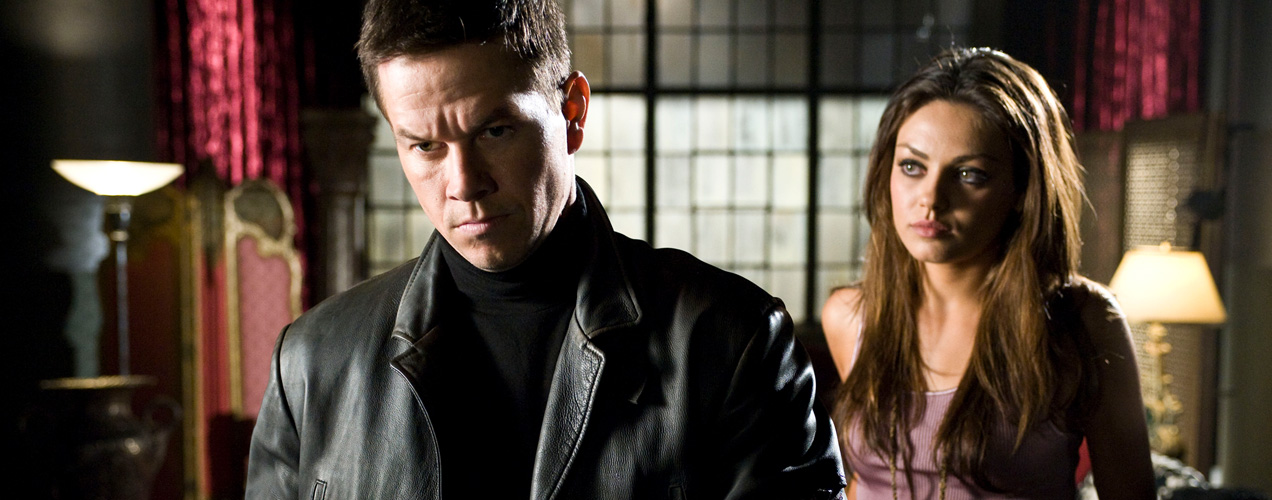
Max Payne
2008 / John Moore > Confessions first: I loved the video game when it was first released. I loved the story, and I loved the gameplay. But ironically enough, I couldn’t remember much of the story (besides the obvious wife and child getting murdered). So, while watching the movie, I had no idea that they were actually being surprisingly faithful to the whole thing. Which makes me ask: Did this story simply make more sense as a video game? Because as a movie, this was predictable and a huge waste of potentially awesome bullet-time sequences. In fact, there’s nothing to indicate the Max Payne action-style in the whole first-half. Worst of all, the casting is atrocious. Mila Kunis is wonderful in Forgetting Sarah Marshall, but not so here. Mark Wahlberg? He’s no Max Payne, let’s face it. And this movie, it doesn’t do the game justice.
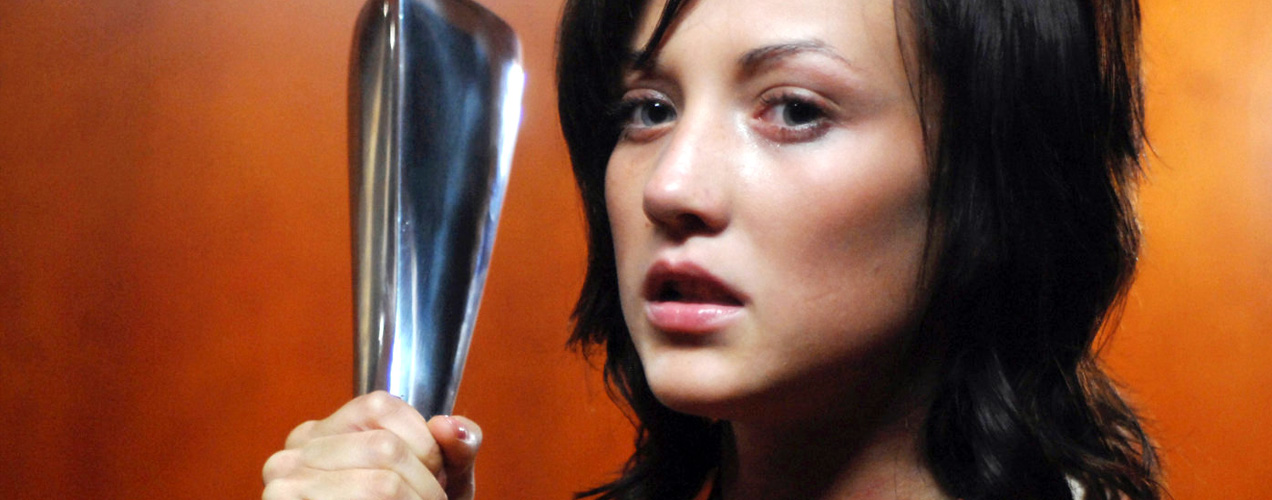
Donkey Punch
2008 / Oliver Blackburn > Wikipedia describes a donkey punch as “a slang term for an apocryphal and potentially lethal sexual practice supposedly performed during anal sex or doggy-style sex.” And that, my friends, is the central catalyst for the story. But that isn’t necessarily a bad thing. In fact, cookies for originality there. The problem is the manner in which a hedonistic boat ride turns into a tour of humanity’s descent into hell. It’s a bit crazy, sure, but when you don’t care about any of the characters (because they’re all annoying, selfish brats) and you’ve already witnessed the aforementioned act of sexual bravado, what else is there to be shocked by? The show becomes limp halfway through, even with its spunky premise.
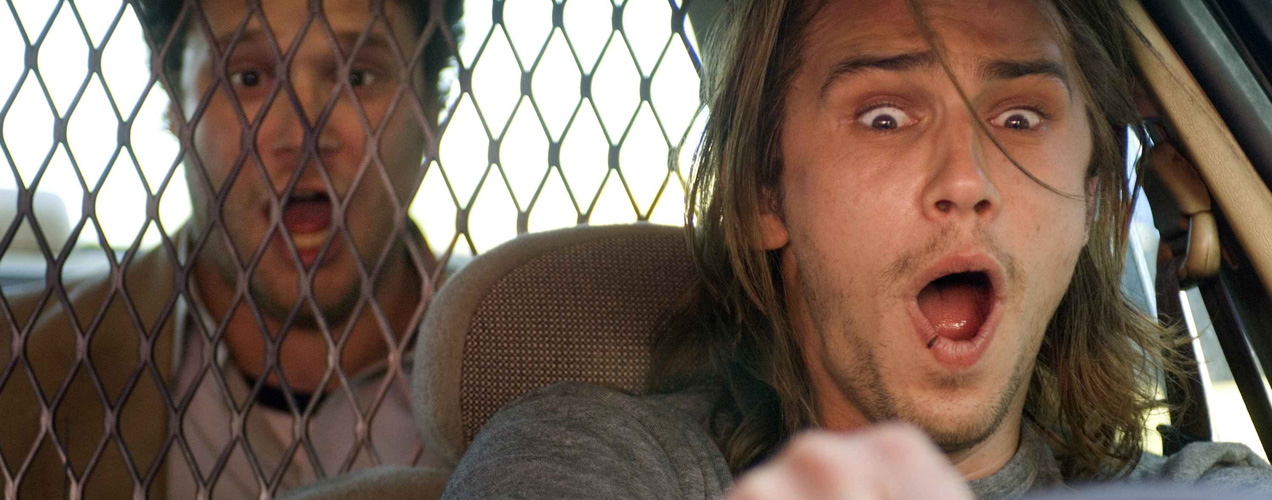
Pineapple Express
2008 / David Gordon Green > I can’t help but say how surprised I am at how much I couldn’t stand this movie. I barely laughed at its predictable jokes and had trouble cringing through its terrible story. Sure, maybe the focus of the film wasn’t its story, but rather how silly things get when toked up. But there’s a difference between credulous silly and insulting silly, and this is pretty easily in the latter territory. An incredible mishap and a terrible introduction to the works of Green. I just wanted this to end, but it dragged on forever.

WALL·E
2008 / Andrew Stanton > It’s truly a testament to Pixar’s ability to make an animated film where the lead character barely utters a word. In its quiet repose, WALL·E evokes emotions that are all within us, of abject loneliness and wanting to be understood, though never sensationalizing either. Face it: This isn’t a kids movie. The ideas within the film are not easily understood beyond the surface level by anyone who hasn’t experienced a degree of heartache.
The first half is sheer brilliance. While its minimalist approach isn’t a rarity in the current film market, the unpretentious manner in which it unfolds is. It works for almost everyone who watches it because it doesn’t insult anyone’s intelligence or patience. The second half, however, becomes problematic for me. To begin with, the treatment of obesity is something I had a hard time looking past. In a country where weight is such an issue, it almost hurts to see it treated as a joke. More importantly, I felt that nearing the climax, the story lost its footing. It became symptomatic of a typical animation flick than something special. Finally, the ending was too easy. I just couldn’t find solace in its outcome. I felt cheated. Maybe that makes me cynical, but sometimes too much hope is a bad thing. But these points withstanding, WALL·E makes a strong case for the spirit and future of Western animation.
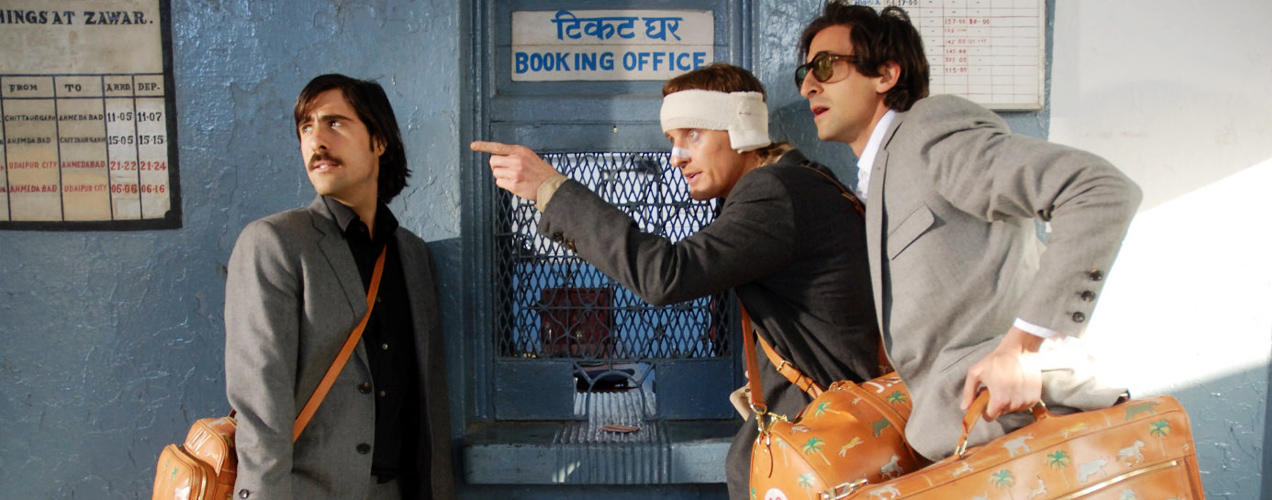
The Darjeeling Limited
2007 / Wes Anderson > Anderson knows how to seduce me. Emotionally, visually, with music and wonderment, the man has a certain style that gets me at the core. Even now, several months after having seen The Darjeeling Limited for the first time, I can’t forget the The Kinks’ “This Time Tomorrow” and the opening sequence it accompanies. It has, in this short time, become one of the most memorable film moments of my life. But unlike The Life Aquatic with Steve Zissou, the thematics presented here are considerably more universal.
We’re all in search of something, always. After we find one thing, we realize we’re missing something else. The brothers in the film search for ways to deal with loss, love and redemption using their own paths. But one thing leads to another, and things are never as simple as they seem. Ironically, this leads to my primary qualm about the film: Several times the movie seems to end only to continue on. Pacing becomes an issue until we realize we’re like that too. Sometimes the journey is the solution in itself, and sometimes it doesn’t end when you think it ought to. The Darjeeling Limited is an experience that sticks, moreso than any Anderson film, in those small spaces in your mind that keep hope alive.
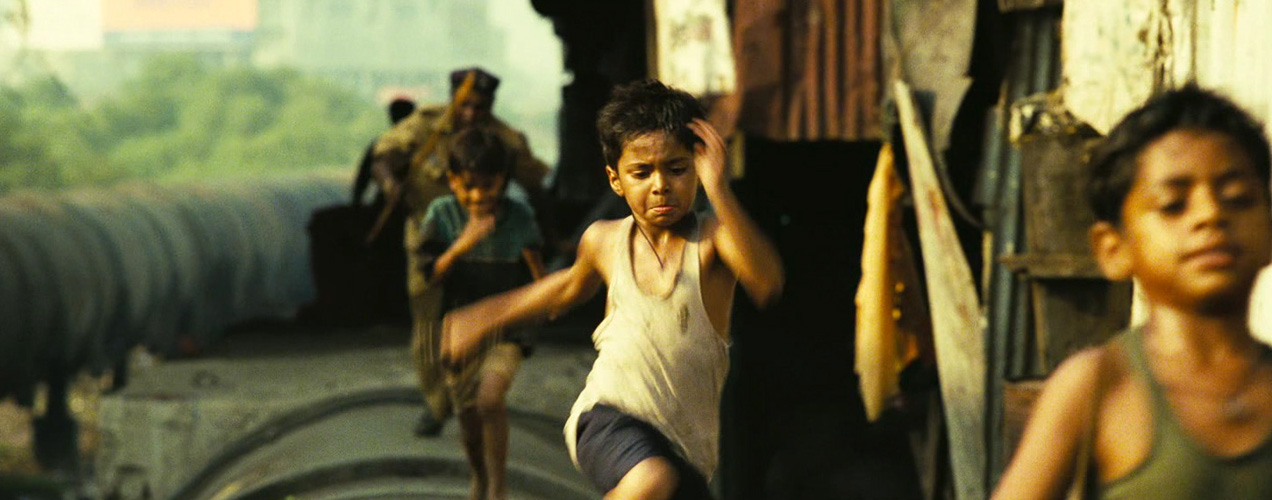
Slumdog Millionaire
2008 / Danny Boyle > Boyle’s really hit me from left field on this one: Boasting one of the most impressive and varied filmographies in cinema today, I imagined this to simply be a heart-warming tale of rags-to-riches and romance. Well, that it is, and so much more. Slumdog Millionaire is conscious of the modern-day India, crisscrossing from the slums to India’s upper class while still approaching the shady underground gangsters and their counterparts (and every American’s favorite) the call center operator. Stylistically, it borrows as much from Boyle’s own Trainspotting as it does from City of God. The vibrant colors and sharp editing energize the film’s pacing so that the viewer’s journey is a non-stop feast of entertainment. And a soundtrack cutting M.I.A.’s beats and vocals only support that foundation. There are a couple of things to be understood, though: The story is fairly conventional, the “plot twist” happens in the beginning, so the viewer isn’t being suckered on, and it’s a bit predictable. But none of that keeps it from being arguably the most incredible, enjoyable film of the year. The whole experience is a crescendo that culminates with the kind of gritty satisfaction that no straight-edged family film can offer.
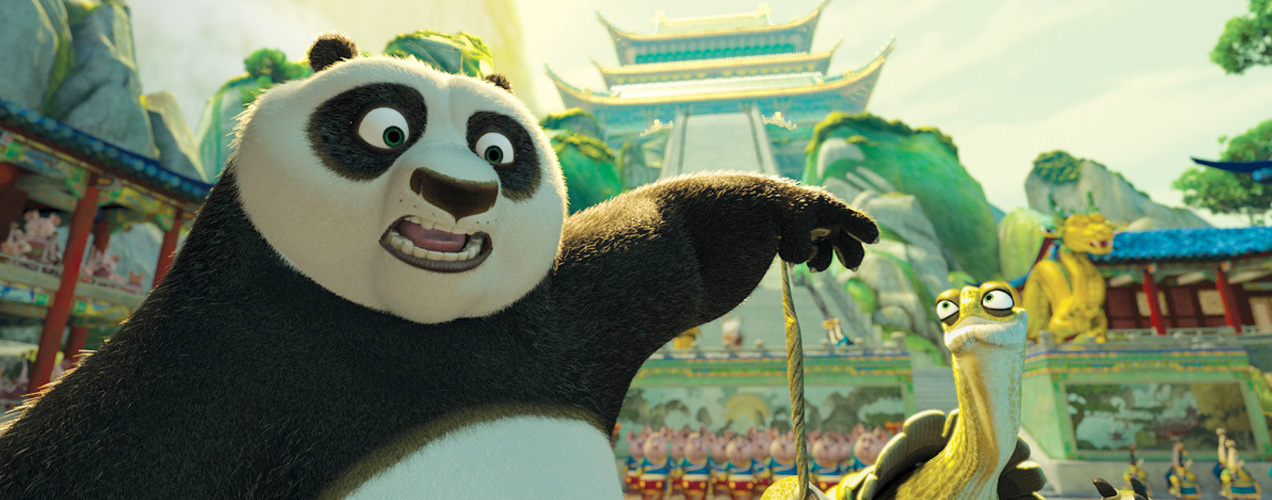
Kung Fu Panda
2008 / Mark Osborne & John Stevenson > There’s a creature out there who’s sometimes hard to ignore, but in the right habitat, he blends in just right. That creature is none other than Jack Black, who, in Kung Fu Panda, is as fitting and effective in a role since The School of Rock. And if you think it’s an easy job doing a voice-over, I must point to the fact that someone like Angelina Jolie simply can’t hide her persona behind her animated character. The second she speaks, you know who it is, and her larger than life character shows through the CGI. But back to the movie: This is beyond anything I could have expected from Dreamworks Animation and is arguably their best effort since the original Shrek. It’s light-hearted, imaginative, highly entertaining and funny. It lacks the depth to rank alongside some of the great animated works of this era, but is nonetheless a great story of an underdog that gives hope to noodle shop owners who aspire to be something more.

